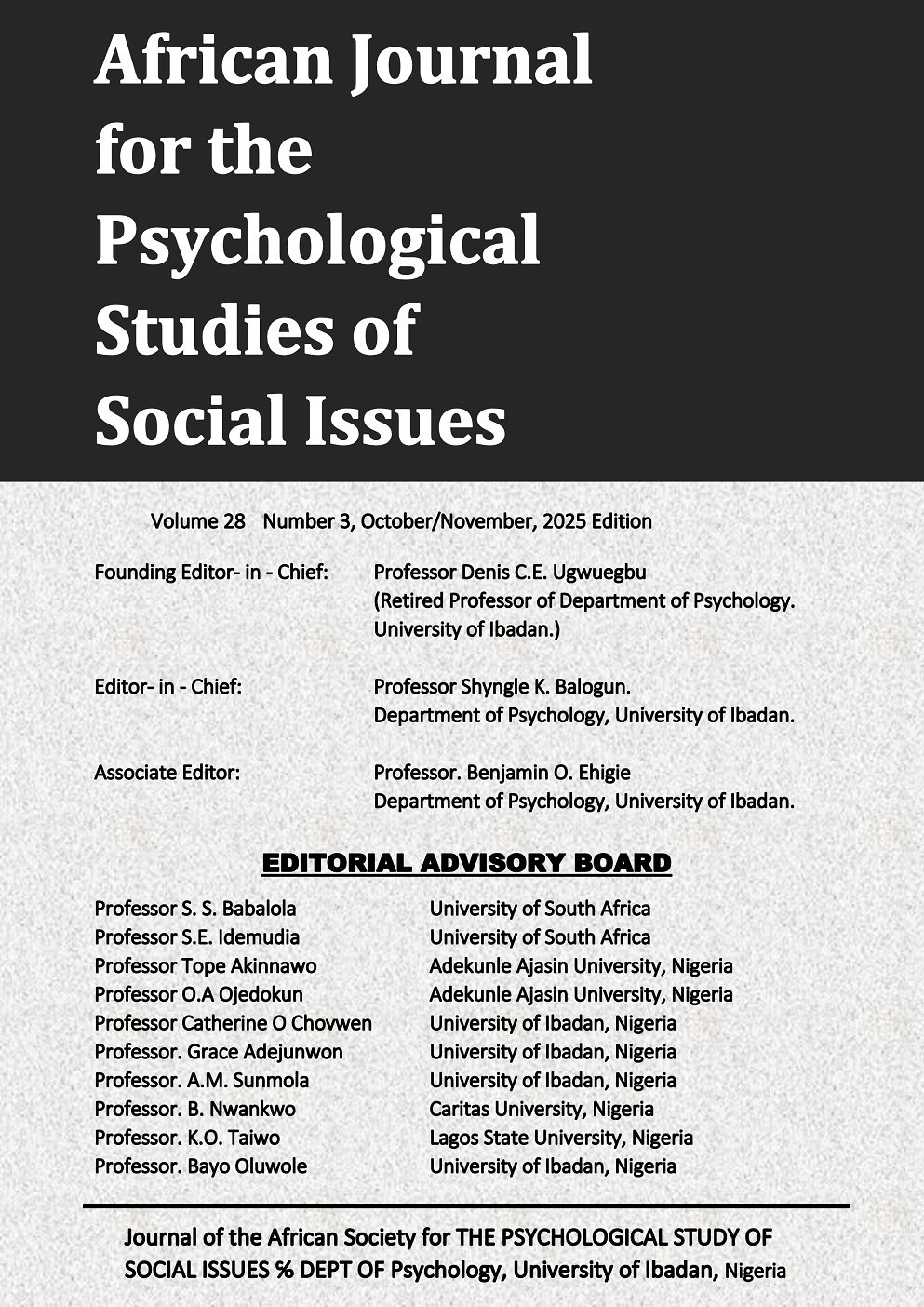TAX REFORM AND FINANCIAL STRESS: ASSESSING THE PSYCHOLOGICAL IMPACT OF TAX POLICY CHANGES ON NIGERIANS’ MENTAL HEALTH
Abstract
Tax reforms are essential for economic growth, yet they often introduce financial stress, affecting individuals’ mental well-being. This review paper examines the psychological impact of tax policy changes on Nigerians’ mental health, emphasising financial stress as a key factor. It explores existing literature on the relationship between taxation, financial burden, and psychological distress, focusing on anxiety, depression, and coping mechanisms among affected individuals. The study adopts a qualitative methodology, relying on secondary data sources such as books, peer-reviewed journals, government reports, and policy documents. Theoretical perspectives such as Social Stress Theory, Stress Process Theory, Behavioural Economics Theory, Cognitive Dissonance Theory, and Psychosocial Theory provide a framework for understanding how tax-induced financial stress influences mental health outcomes. Empirical evidence from global and Nigerian contexts highlights the disproportionate effects of taxation on low-income earners and vulnerable groups. Findings suggest that tax policy changes, particularly those increasing the financial burden on individuals, contribute to heightened stress levels, anxiety, and reduced mental well-being. The study recommends policy adjustments that balance revenue generation with citizens’ financial stability and psychological welfare. Additionally, it calls for greater integration of mental health considerations into tax policy formulation.
Keywords: Tax Reform, Financial Stress, Mental Health, Taxation Policy, Psychological Impact, Nigeria.
Downloads
Downloads
Published
Issue
Section
License
Copyright (c) 2025 AFRICAN JOURNAL FOR THE PSYCHOLOGICAL STUDIES OF SOCIAL ISSUES

This work is licensed under a Creative Commons Attribution 4.0 International License.
Copyright is owned by the journal.




